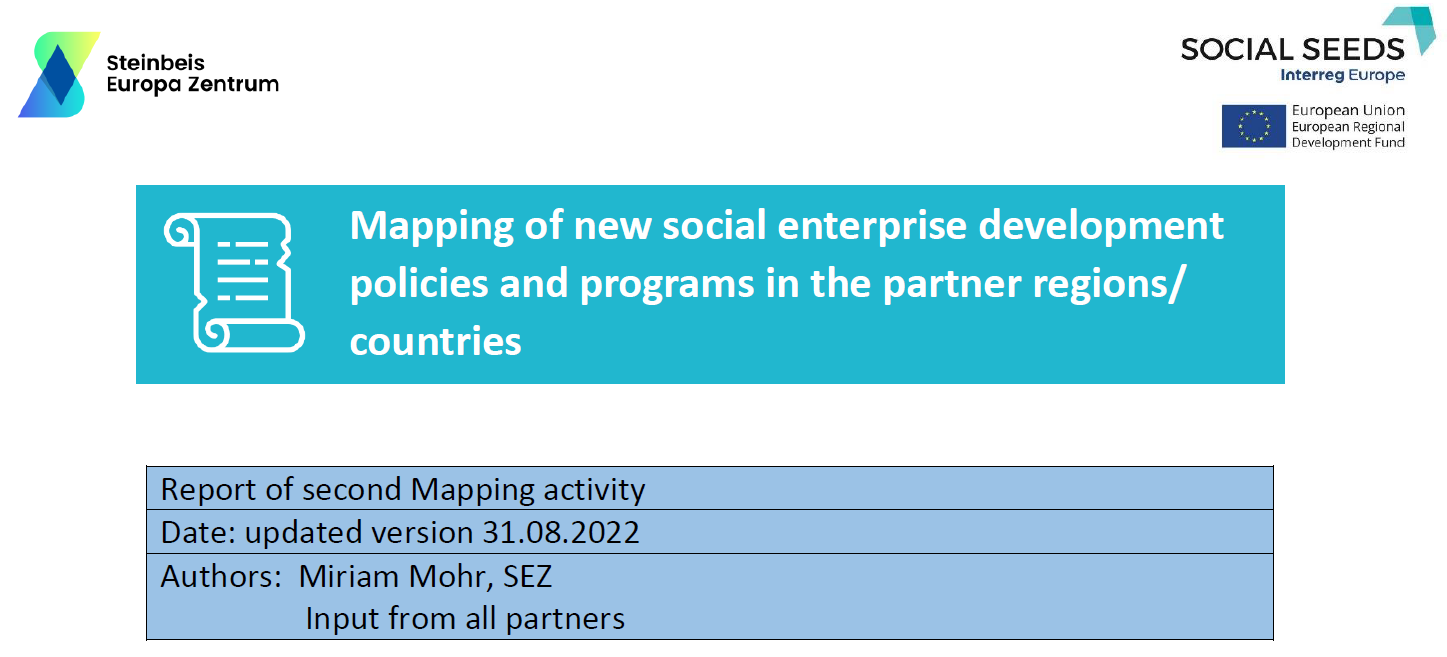
Results of mapping activities – Part II
Results of mapping activities in the extension period of Social SEEDS – Part II
In 2011, the European Commission launched the Social Business Initiative (SBI)2 in a recognition of the growing social economy and entrepreneurship that accounts for more than 11 millions of workers, 4.5 % of the active EU population. Since then, a lot has been achieved (e.g. the European Social Entrepreneurship Fund, Social Stock Exchanges), however, policies addressed to social enterprises are still under-developed and fragmented in most Member States.
Motivated by the above challenge, SOCIAL SEEDS partnership aims to equip policy-makers with evidence-based policy diagnostic tool that increases the effectiveness of local and regional policies for stimulation of growth & employment (preferably of vulnerable social groups) in social enterprises (SE) including their eco-systems in European cities and regions. To this end, regional and local government-run measurement and labelling scheme addressed to social enterprises (SE) will be established. It will help policy-makers’ concrete actions towards creating the right conditions to allow the sector to thrive.
Although, similar issues related to strengthening the position of SEs within the private & public sphere has already been part of EU development agendas for many years, but the focus on ranking and benchmarking regional and local SEs according to policy metrics is new. Therefore, SOCIAL SEEDS partners believe that the achievements will efficiently contribute to shaping European policymaking as well as engage multi-stakeholders in the way policies are generated, implemented and monitored.
€1,712,719.00
SME competitiveness
„7 regions, 1 goal: Enhancing the social enterprise eco-systems in European regions through government-run measurement and labelling scheme”
Under the Priority 5 of the EDIOP Economic Development and Innovation Operational Programme the policy instrument entitled to “Employment capacities of social enterprises will be strengthened” is addressed. This policy instrument aims to increase the employment capacities of the social enterprises, in a sustainable manner; and thereby assisting job seekers and inactive individuals living primarily in disadvantaged regions in finding jobs. It will be achieved by a) establishing sustainable business models and also b) a general framework for social enterprise development by supporting transit employment in order to promote the employment of disadvantaged people. A total of 4000 new sustainable job opportunities (workplaces) will be created by the supported social enterprises enabling the employability of disadvantaged unemployed and inactive individuals. The current policy instrument is only setting directions on what to achieve as a final outcome, but provides no continuous analysis & monitoring of activities addressed to improve the social enterprise landscape, resulting in fragmented political interventions and the lack of system approach in follow-up. Deep dive in interregional good policy making practices will contribute to this process.
Under the Priority 9 of the Operational Programme for the Implementation of the EU Cohesion Policy 2014-2020 “Promoting social entrepreneurship and vocational integration in social enterprises and the social and solidarity economy in order to facilitate access to employment” is addressed. This policy instrument aims to develop social entrepreneurship, a rather new phenomena in Slovenia through providing supporting environment and services for the creation of strong and sustainable social enterprises as well as entrepreneurial knowledge and skills of social entrepreneurs. Dedicated support schemes entail trainings and participation of vulnerable groups in social enterprises as well as increasing employment in existing or new social enterprises. Currently. the measure is available only in the East Cohesion region of Slovenia, however, we are convinced, that support for the development of social enterprises are needed also in the other regions, especially in economically less developed rural areas or in regions hit by high unemployment of certain disadvantaged social groups with weak entrepreneurial culture. Due to the fact that so far support measures for social enterprises have not been developed yet, the number of sustainable social enterprises is relatively low, access to trainings to social enterprises are rare. Policy improvements will therefore tackle the above challenges including policy learning from other EU regions, with a more developed social enterprise landscape.
Under the Priority 8 of the Podkarpackie Region Operational Programme 2014-2020 the policy instrument entitled to 9v Promoting social entrepreneurship and vocational integration in social enterprises and social economy and solidarity in order to facilitate access to employment is addressed. The specific objective of the policy instrument is to strengthen the role of social economy entities in the activation of disadvantaged people and in providing social services of general interest in the region. Till 2020, it is expected that the number of jobs created in social enterprises will increase from 377 (2013) to 1079. Similarly, the number of jobs existing at least 30 months, created in social enterprises will be increased by 25 per cent. Currently, the main bottleneck of running policy initiatives at regional level is the lack of coordination that leads to activities being carried out by municipalities, districts or provinces solely, but without exploiting synergies. Improvements will be primarily addressed to not only increase the number of social enterprises that generate jobs for people who have experienced social exclusion but through this measure can be competitive on the market, while pursuing a social mission by 2020 but continously monitor and assess the efficiency of resources allocated.
Under the Priority 8 of the EDIOP Economic Development and Innovation Operational Programme the policy instrument entited to “Improved access of enterprises – including social enterprises working for society – to external funding, which realize investments that stimulate employment.” is addressed. This policy instrument aims to promote access to external funding and employment potential in case of enterprises launched by youth and job seekers as well as social enterprises. As a result of the developments the enterprises –including start-ups and social enterprises – will strengthen in a sustainable way. The indicator of 3 year surviving rate of the enterprises will be increased from the base value 52.15 per cent (2011) to 53 per cent by 2023. The current policy instrument is encouraging social enterprises by strengthening their employment potential via credit programmes in two stages. Stage 1 (initial stage): complex, large programs mainly with non-refundable aims will be supported, Stage 2 (second half of the 7-year period): FI increasingly involved for promoting social enterprises, which have already started and working. Nevertheless, improved hybrid financial instruments and microfinance addressed to social enterprises - that increasingly pursue a “double bottom line” of profit and social good. - should be strengthened based on successful financial instruments already tested and validated by other European partner region.
FEATURE: Under the Priority 2 of Operational Programme Employment (OP Emp) the policy instrument entitled to 2.1.2.:The creation and development of entrepreneurial activities in the field of social entrepreneurship. The policy instrument aims to promote and create conditions for the emergence and development of social enterprises, raise awareness about social entrepreneurship and cooperation between all relevant actors is addressed.
IMRPOVEMENT NECESSITY : The policy instrument contributes to Social-SEEDS’ mission as it is not only in accordance with the priority and specific objective of the policy instrument in OP EIC but the project CrossTT is in Czech republic also in accordance with the proposed activities in specific objective 2.1.2. The current policy instrument is only setting directions on what to achieve as a final outcome, but provides no continuous analysis & monitoring and measurement of the efficiency of social enterprises activities as well as no methodical frame on how to improve the social enterprise landscape. Exchange and in interregional good policy making practices will contribute to this process.
Under priority 2 of the Operational Programme for Cohesion Policy Funds 2014-2020 the policy instrument entitled to 2.1 “Qualifications and skills meeting the needs of society and the labour markets” is addressed. The focus of the Operational Programme is on investments that contribute to the central objectives of the 'Estonia 2020' National Reform Programme. The policy instrument addressed, namely 2.1. “Qualifications and skills meeting the needs of society and the labour markets” further policy instrument under the above priority : 2.2 "Increasing social inclusion" and 2.3.” Improvement of access to, and prevention of dropping out of, the labour market” will also be taken into account.
The policy instrument has been selected for improvement due to the bottlenecks of the priority axis that do not pay dedicated attention to developing social entrepreneurship in Estonia, overall. Although social entrepreneurship has a great potential as evidenced by the experience of other countries, the phenomenon is underdeveloped & lacks good practices. The positive impact of social entrepreneurship to the sustainable socio-economic development of the country is not fully grasped in Estonia, as policymakers lack relevant evidence-based policy diagnostic tools. Social enterprises often focus at improving the labour market situation & employability of the most vulnerable groups in the society so this underdevelopment negatively affects the involvement of risk groups to the labour market.
Within Investment Priority 3a of the 2014-2020 ERDF Operational Program of Abruzzo Region intends to promote entrepreneurship, in particular by facilitating the economic exploitation of new ideas and fostering the creation of new firms, including through business incubators- It should be ensured by introducing a separate funding for social enterprises and innovative start-ups, and instituting for these target groups a service incubator, which will help them entering the market, or repositioning on it, to improve value-for-money of investments even in the social sector. The Investment Priority 3b is focused to improve public funding for SMEs, with the aim of developing and implementing new business models for SMEs, in particular for internationalization. In this measure the Region is engaged to support the economic recovery and employment impact of the financial crisis areas recognized at regional level, through the strengthening of the production processes of existing companies, the reorganization of management processes, organization and marketing and strengthening of production capacity. This policy instrument could be better implement in integrating specific measures for stimulation of growth & employment tailored for social enterprises (SE)
The programme aims to create growth and jobs by boosting innovation and competitiveness, and improving the efficient use of resources. It shares the objectives defined by the Europe 2020 strategy for a smart, sustainable and inclusive growth. The programme intends to increase SMEs competitiveness, strengthen research and innovation and ICT, protect the environment and promote an efficient use of resources and develop transport networks. The Programme will focus on six main priorities out of which: P3.Promoting SMEs competitiveness (14.6% of total ERDF) deal with SEs.The Investment Priority 3b is focused to improve public funding for SMEs, with the aim of developing and implementing new business models for SMEs, in particular for internationalization. In this measure the Region is engaged to support the economic recovery and employment impact of the financial crisis areas recognized at regional level, through the strengthening of the production processes of existing companies, the reorganization of management processes, organization and marketing and strengthening of production capacity. This policy instrument could be better implement in integrating specific measures for stimulation of growth & employment tailored for social enterprises (SE) by assuring: A better coherence with a challenging and changing context, that is exposed to tremendous changes deriving from migration flows and increase in regional disparities due to the economic and financial crisis.
The Land of Baden-Württemberg, more precisely the Ministry of Economic Affairs, Labour and Housing Baden-Württemberg, has created the function of the Commissioner for Europe under Public Mandate to enhance the innovation potential of regional SMEs and support them to tackle future societal challenges. To maintain Baden-Württemberg’s structural strength and high innovativeness the Commissioner for Europe explicitly supports SMEs active in the social economy and new technology area aiming to acquire dynamic new growth areas. The Commissioner for Europe is in permanent contact with the Ministry through frequent meetings and services provided to the Ministry of Economic Affairs, Labour and Housing of Baden-Württemberg who finances directly this function. The Commissioner for Europe offers many services for the regional SMEs oriented towards social innovation. Among the most important services are consultancy & assistance regarding European Funding and Research Programmes, Technology Cooperation, Participation at and organization of Brokerage Events, Company Missions and Information Days as well as Trainings. These services have to be improved given the structural change towards a digitalised economy for a faster know-how transfer and market uptake of innovation at the European level. The operational unit of the Commissioner for Europe of the Ministry of Economic Affairs, Labour and Housing Baden-Württemberg is the Steinbeis-Europa-Zentrum (SEZ).

Results of mapping activities in the extension period of Social SEEDS – Part II
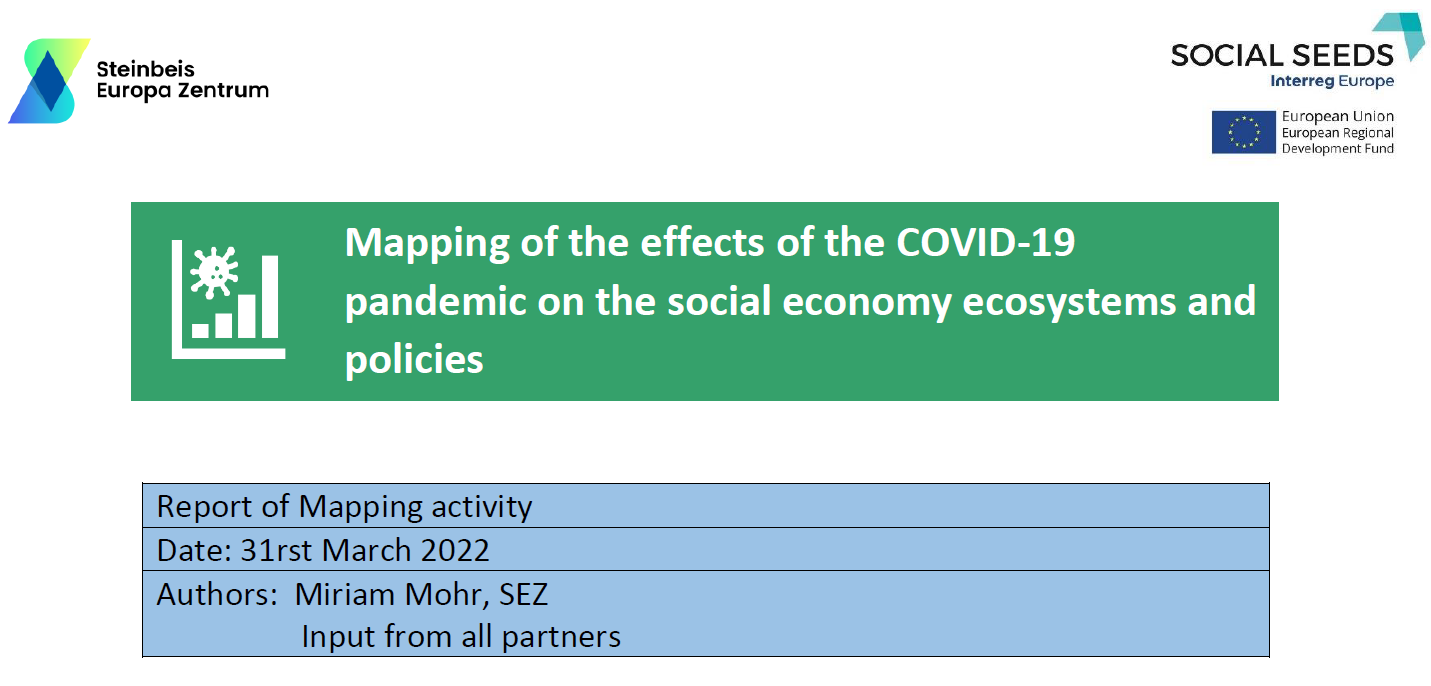
The partner organizations implemented thorough mapping activities in the framework of the project extension.

The Social SEEDS partnership organised the 2nd transnational workshop of the extension period on the 27th of September, 2022.
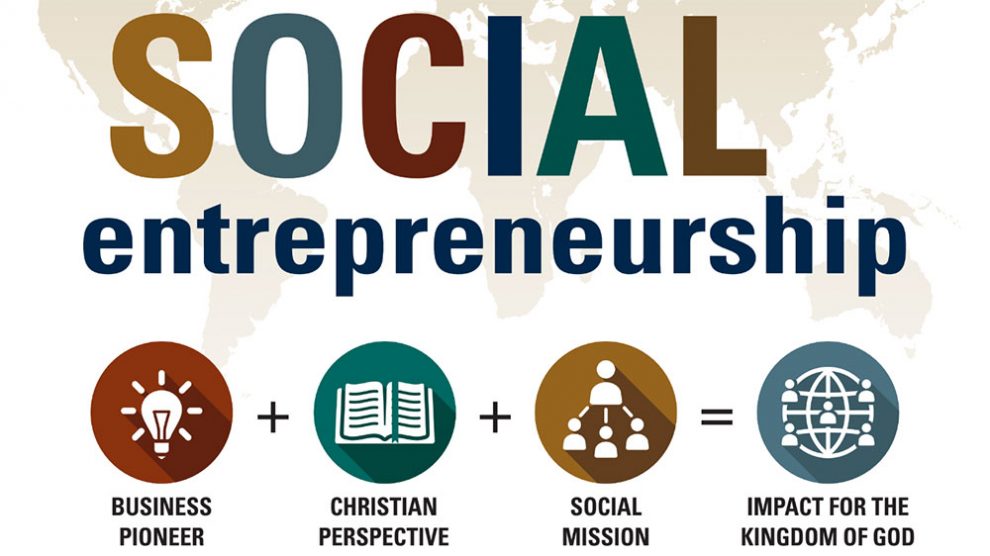
Social entrepreneurship in Europe: policies, current trends and international cooperation opportunities
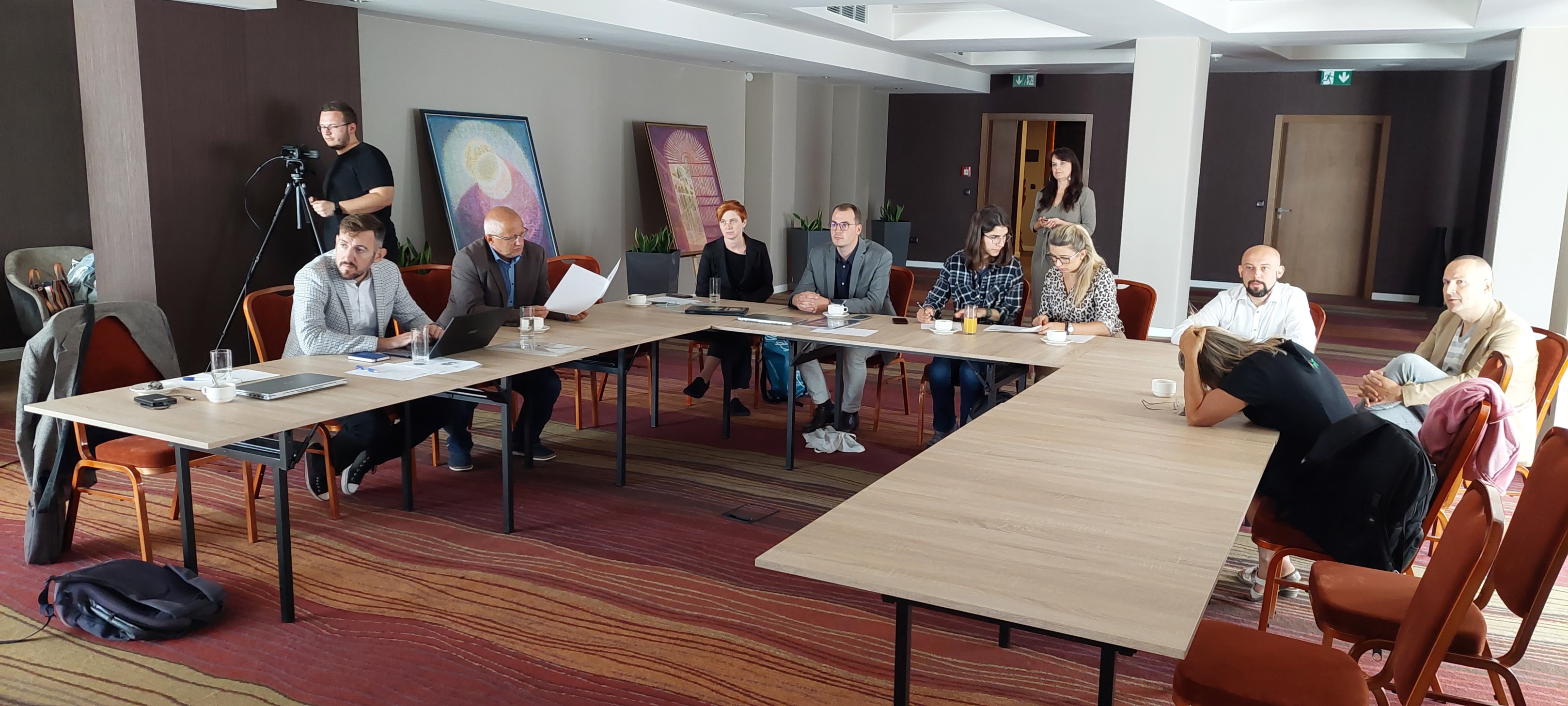
The 2nd Policy Learning Dialogue in the extension period of the Social SEEDS project had been organised between the 7th and 8th of September, 2022 in Rzeszów, .
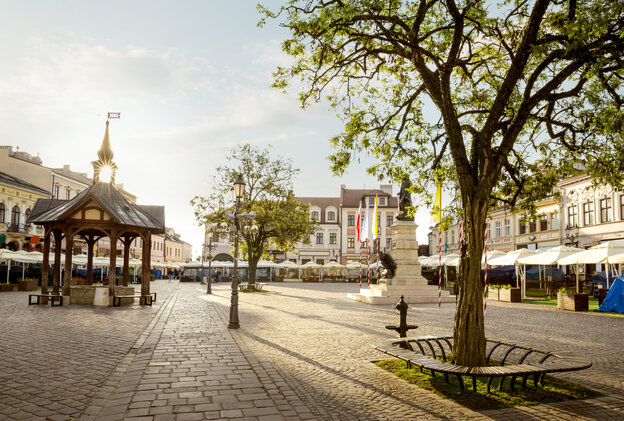
The Social SEEDS partnership organizes its 2nd Policy Learning Dialogue between the 7th and 8th of September, 2022 in Rzeszów, Poland.
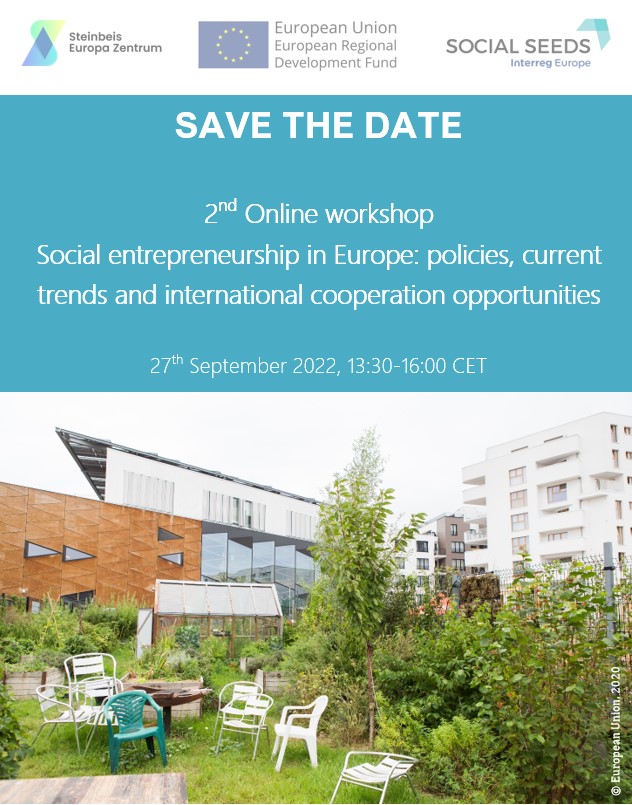
The Social SEEDS partnership holds its 2nd transnational workshop on the 27th of September, 2022!
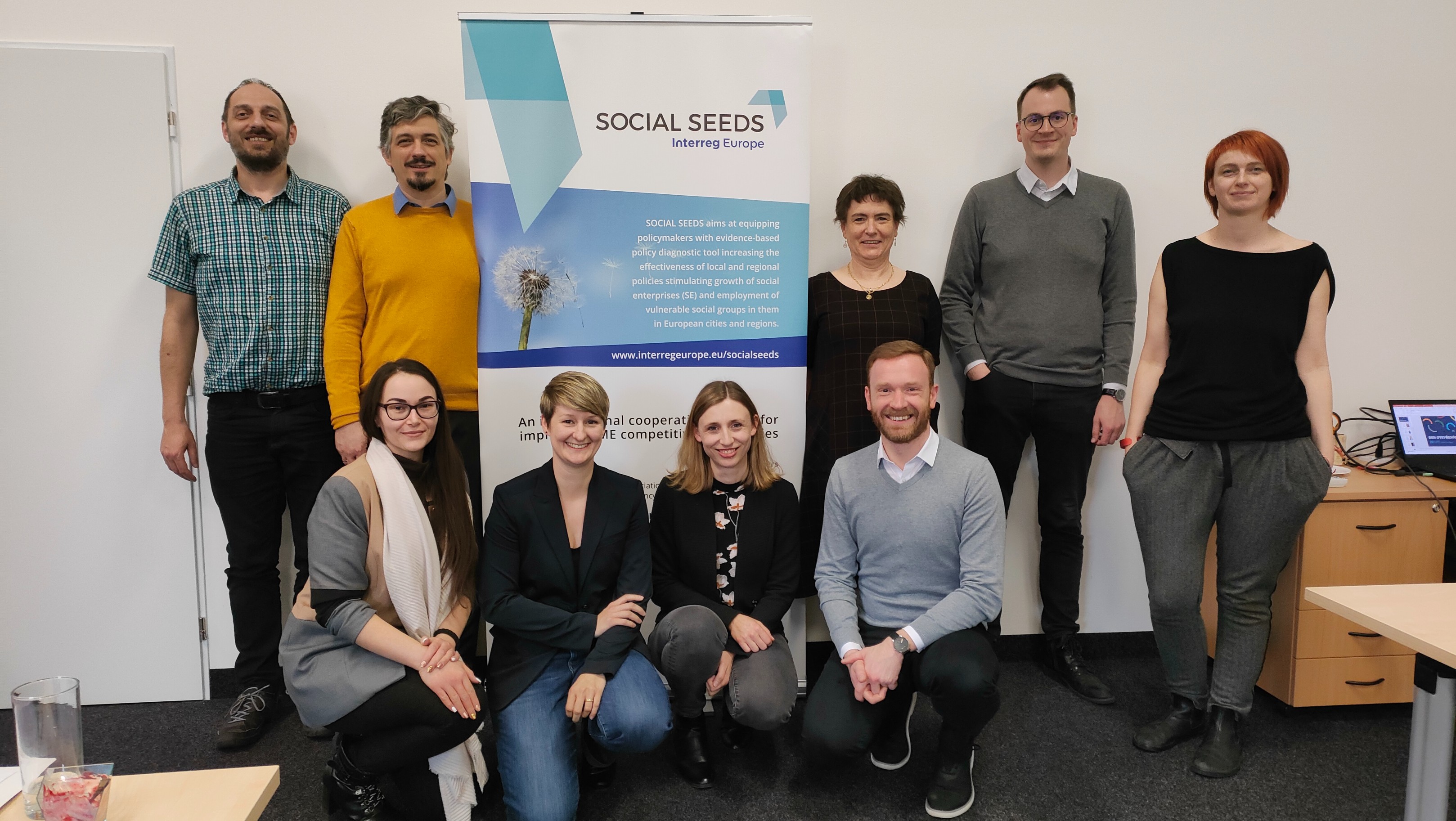
The Social SEEDS partnership organised the 1st Policy Learning Dialogue of the extension period between the 5th and 6th of April, 2022 in České Budějovice, C...
The first transnational workshop of the Social SEEDS partnership was organised on the 26th of January, 2022 as an integrated program of the DepoSIt project’s
The Social SEEDS partnership is happy to announce that the project may continue its policy-support activities until the 30th of September 2022
The Social SEEDS...